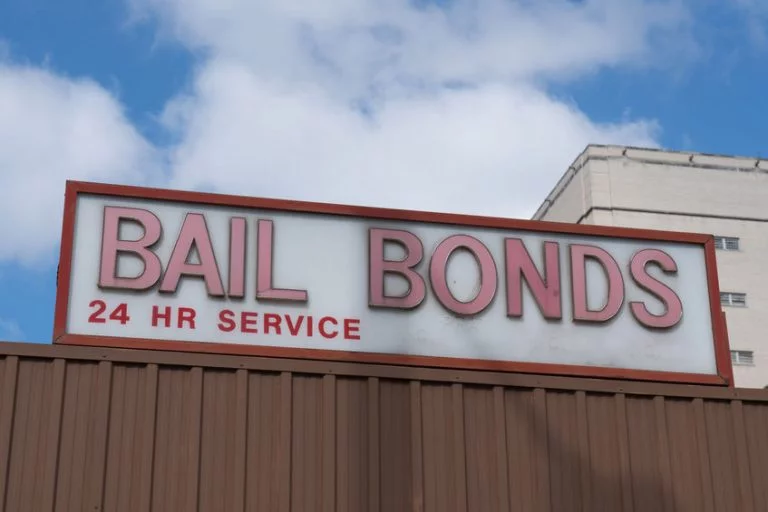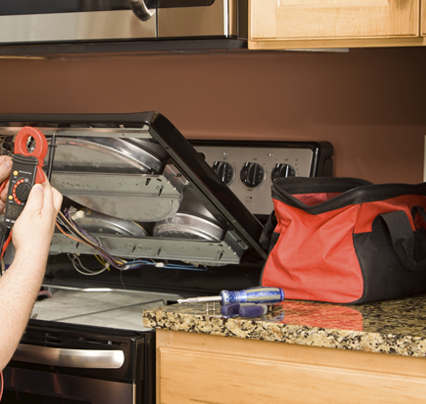Navigating the World of Bail Bonds: What to Expect and How to Choose the Right Bondsman
Are you feeling lost in the intricate web of bail bonds? Don’t worry, we’ve got your back! Whether you’re a concerned loved one or find yourself on the wrong side of the law, understanding the world of bail bonds is crucial. In this comprehensive guide, we’ll unravel the mysteries surrounding bail bonds and arm you with all the knowledge you need to make informed decisions. From demystifying legal jargon to providing tips on selecting a trustworthy bondsman, get ready to navigate this complex landscape with confidence and ease. So let’s dive right in and ensure that no matter what hurdles come your way, you’ll always have a reliable lifeline at hand – because everyone deserves a fair shot at justice!
What are Bail Bonds?
If you or a loved one has been arrested and is sitting in jail, the first thing you’ll want to do is get them out. Bail is the amount of money set by a judge that must be paid in order for an individual to be released from custody until their court appearance. The process of posting bail can be confusing and overwhelming, but luckily there are bail bondsmen who can help.
Bail bondsmen are professionals who post bail on behalf of their clients. In exchange for this service, the bail bondsman will charge a non-refundable fee (usually 10% of the total bail amount). Once the fee is paid, the bail bondsman will post the bail and the arrestee will be released from jail.
It’s important to choose a reputable and experienced bail bondsman who you feel comfortable with. Be sure to ask plenty of questions and get all of the information upfront before making any decisions.
How to Choose the Right Bondsman
When you or a loved one is facing arrest and possible jail time, the bail process can be confusing and overwhelming. In order to ensure that you are making the best possible decisions for your situation, it is important to understand how bail works and what to expect when working with a bondsman. This guide will provide an overview of the bail bond process and offer tips on choosing the right bondsman for your needs.
The first step in understanding bail is to know that there are two types of bail: criminal bail and civil bail. Criminal bail is set by a judge during a defendant’s arraignment and is based on the severity of the crime, the defendant’s criminal history, and whether or not they are considered a flight risk. Civil bail, on the other hand, is set by the court during a hearing after someone has been arrested and is designed to ensure that the defendant appears for their scheduled court date.
Once you have determined which type of bail you need, you can begin researching bondsmen in your area. When looking for a reputable bondsman, be sure to ask about their experience, licensing, and insurance coverage. You should also inquire about any hidden fees or extra costs associated with their services. Once you have found a few bondsmen that you feel comfortable with, be sure to get everything in writing before signing any contracts.
If you or someone you love is facing arrest, don’t go through it alone. Contact a reputable bail bond company today to learn more about the bail bond process and how to choose the right bondsman for your needs.
The Basics of the Bail Process
When you or a loved one is incarcerated, the bail process can be confusing and overwhelming. Here is a breakdown of what to expect and how to choose the right bail bondsman.
The first step is to contact a bail bondsman. You will need to provide them with some basic information about the arrest and the charges. The bondsman will then give you a quote for the bond premium, which is the fee they charge for their services.
Once you have decided to use a particular bail bondsman, they will post the bond at the jail and your loved one will be released. It is important to note that you are still responsible for ensuring that the Defendant appears in court. If they fail to do so, you may be required to pay the full bond amount.
When choosing a bail bondsman, it is important to ask about their experience and reputation. Be sure to also ask about any additional fees that may be required, such as collateral or cosigners. Getting expert help during this difficult time can make all the difference, so be sure to choose wisely.
Understanding Collateral and Bond Fees
When a defendant is arrested and booked into jail, they are typically required to post bail in order to be released from custody. Bail is usually set by a judge at the defendant’s initial appearance in court. The purpose of bail is to ensure that the defendant will return for future court appearances.
There are two main types of bail: surety bonds and cash bonds. Surety bonds are posted by a professional bail bond agent, who guarantees that the full amount of bail will be paid if the defendant does not appear in court. Cash bonds are posted by the defendant or a loved one, and the entire amount of bail must be paid upfront.
Most defendants do not have the money to post bail on their own, so they must seek help from a bail bond agent. When choosing a bail bond agent, it’s important to understand how collateral and bond fees work.
Collateral is property or money that is used to secure a loan. If the borrower defaults on the loan, the collateral can be seized by the lender. In the context of bail bonds, collateral is typically used to secure the bond premium – this is the fee charged by the bail bond agent for their services.
The amount of collateral required will vary depending on the specific case and the discretion of the bail bond agent. However, it’s important to note that any property put up as collateral must be valued at more than 125% of the total bond amount. For example, if the total bond amount is $10,000, then the collateral must be valued at $12,500 or more.
Bond fees are typically 10% of the total bond amount and must be paid upfront. This fee covers the bail bond agent’s services and is non-refundable even if the defendant shows up for all court appearances. It’s important to understand both collateral and bond fees before entering into an agreement with a bail bond agent.
Different Types of Bail Bonds
There are several different types of bail bonds that a bail bondsman can help you with. The most common type of bond is a surety bond. This type of bond is secured by collateral, typically in the form of property or cash, which is used to guarantee that the defendant will appear in court. If the defendant fails to appear, the court may issue a warrant for their arrest and the money or property used as collateral may be forfeited.
Another type of bail bond is a cash bond. As the name suggests, this type of bond requires the full amount of bail to be paid in cash upfront. The advantage of a cash bond is that it guarantees that the defendant will show up for court, since they would forfeit the entire amount if they failed to appear. However, not everyone has the funds available to pay a cash bond, which is where a bail bondsman comes in.
A bail bondsman can help you secure either type of bond and can also provide guidance on which type of bond may be best for your situation. Contact a local bail bondsman today to learn more about your options and get started on securing your release from jail.
Frequently Asked Questions
Choosing the right bail bondsman is an important decision. You want to make sure you are working with someone who is reputable and has your best interests in mind. Here are some things to keep in mind when choosing a bail bondsman:
-What is the bail process?
-How do I know if the bail bondsman I am considering is reputable?
-How do I choose the right bail bondsman for my situation?
These are all great questions that we will answer below.
The bail process can be confusing and overwhelming, especially if you have never been through it before. A good bail bondsman will be able to explain the process to you in a way that is easy to understand. They will also be able to answer any questions you have along the way.
There are a few things you can do to research the reputation of a bail bondsman. Checking online reviews is a good place to start. You can also ask friends or family members if they have ever used a bail bondsman before and if they would recommend them. Once you have narrowed down your options, give each one a call and ask them about their experience and what they can do for you.
When choosing a bail bondsman, it is important to consider your specific situation. If you are facing serious charges, you will want to work with a bondswoman who has experience handling similar cases. If you are unable to come up with the full amount of bail on your own, you will want to make sure the bail bondsman you choose offers payment plans or other financing options. You should also consider the amount of time they take to respond to inquiries and their overall customer service.
Resources for Further Information
When someone is arrested and jailed, their first thoughts are usually about how to get out of jail and back to their life as soon as possible. For most people, this means posting bail so they can be released from custody until their day in court. But what is bail, exactly? How do you go about choosing a bail bondsman? And what should you expect when working with a bail bondsman?
Bail is simply a way for the court to ensure that the defendant will return for their court date. In order to post bail, the defendant or a loved one must put up money or property as collateral. If the defendant fails to show up for court, they forfeit the bail and may also be subject to additional charges.
There are many factors to consider when choosing a bail bondsman. First, you’ll want to make sure that the bondsman is licensed and insured. You’ll also want to ask about things like collateral requirements, payment plans, and fees. It’s important to understand all of the terms and conditions before signing anything.
Once you’ve chosen a bail bondsman, you’ll need to provide them with some basic information about the defendant and the charges. The bondsman will then post the bail on behalf of the defendant. Once bailed out, it’s important that the defendant attend all required court appearances. If they fail to do so, they could forfeit their bail and be subject to additional charges. If you are interested to read more about bail bondsman in Medina County, check out the website.
Conclusion
Navigating the world of bail bonds can be a difficult and intimidating process. However, this article has provided you with useful information on what to expect and how to choose the right bondsman for your needs. With this knowledge in hand, we hope that you will feel more confident about making an informed decision when it comes to dealing with your bond situation. Remember, the right bondsman can make all the difference in ensuring that you are released from jail as soon as possible so take your time and research thoroughly before choosing one.





